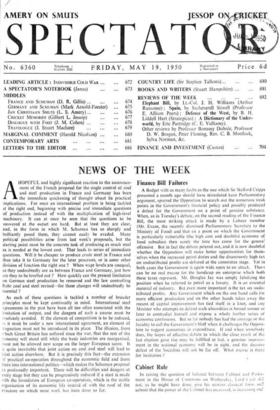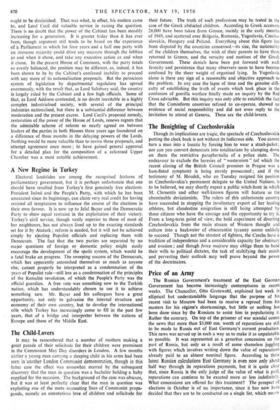Cabinet Rule
In raising the question of balance between Cabinet and Parlia- ment in the House of Commons on Wednesday, Lord Cecil di.: not, as he might have done, give his motion classical form and submit that the power of the Cabinet has increased, is increasing our ought to be diminished. That was what, in effect, his motion came to, and Lord Cecil did valuable service in raising the question. There is no doubt that the power of the Cabinet has been steadily increasing for a generation. It is greater today than it has ever been, though argument still tends to be based on the experience of a Parliament in which for four years and a half one party with an immense majority could drive any measure through the lobbies as and when it chose, and take any executive action as and when it chose. In the present House of Commons, with the party totals so evenly balanced, the position may be different, as, indeed, it has been shown to be by the Cabinet's confessed inability to proceed with any more of its nationalisation proposals. But the pernicious system of legislation by departmental regulation has spread enormously, with the result that, as Lord Salisbury said, the country is largely ruled by the Cabinet and a few high officials. Some of that, as Lord Addison contended, is no doubt inevitable in a highly complex industrialised society, with several of the principal industries nationalised, but there is a substantial difference between moderation and the present excess. Lord Cecil's proposed remedy, restoration of the power of the House of Lords, renews regrets that the admirable scheme of reform so nearly agreed on between leaders of the parties in both Houses three years ago foundered on a difference of three months in the delaying powers of the Lords. Nothing would be more valuable than to revive those proposals, and attempt agreement once more ; to have gained general approval for a detailed plan for the composition of a reformed Upper Chamber was a most notable achievement.











































 Previous page
Previous page